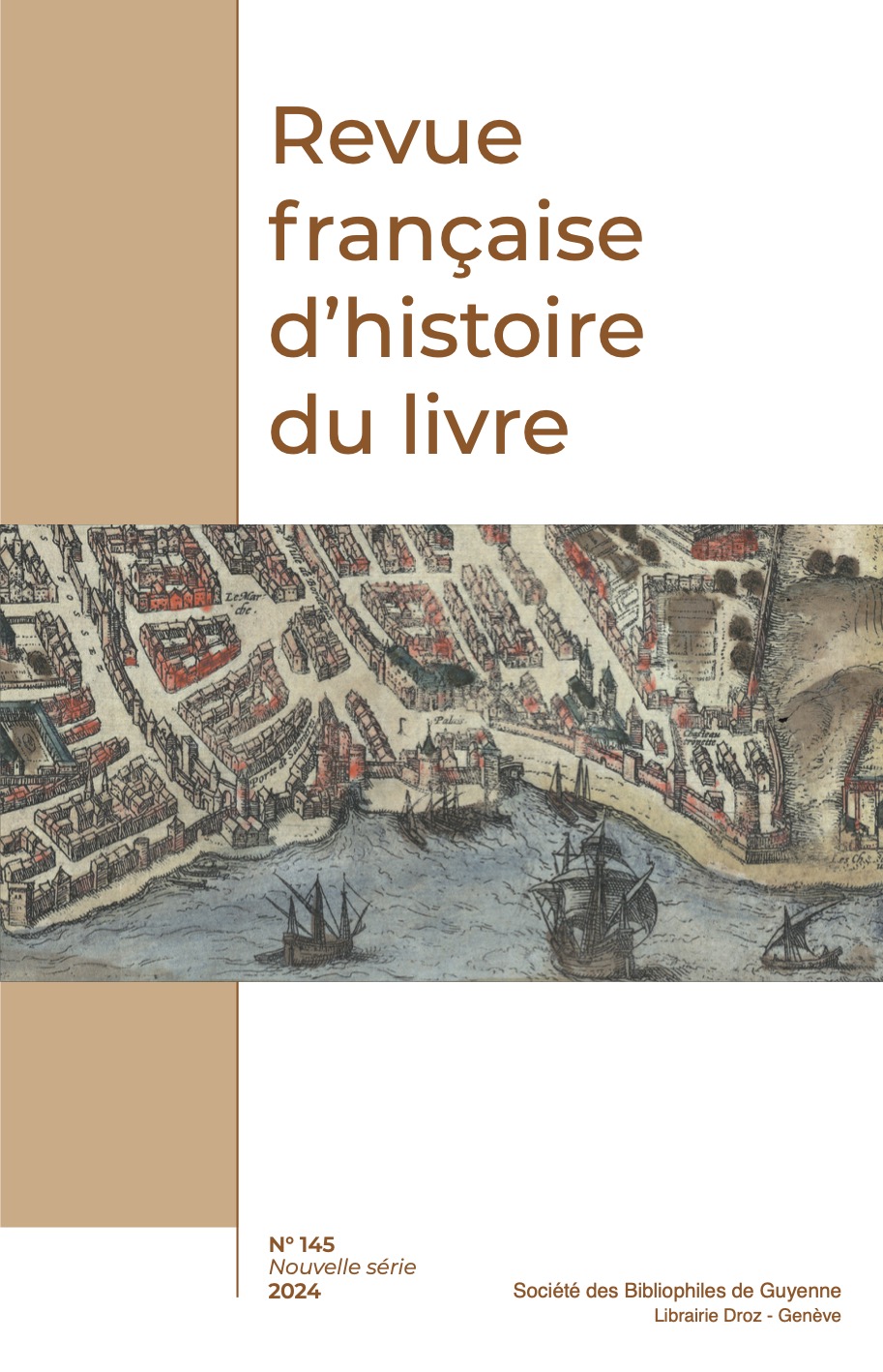« Un colliege en la forme de celuy de Lisieux à Paris » : retour sur les origines du Collège de Guyenne
Abstract
After serving as principal of the Collège de Lisieux in Paris, Jean de Tartas founded the Collège de Guyenne in Bordeaux in 1533. Although this experiment ended in bitter failure, the fact remains that it was Tartas who laid the foundations and established the guidelines for what was to become one of the most important humanist colleges of the 16th century, if not the “best in France” according to Montaigne. This article takes a closer look at its founder and the decisive importance of the Lisieux and Louvain models behind his project. We also look at the intellectual network formed by the first team of regents chosen by Tartas. These “Apolons de Collège”, trained at Lisieux or Sainte-Barbe, another college in the capital, had also attended the first courses at the Collège royal, founded in 1530, and contributed to the success of the new college.

